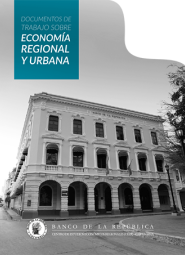Transparency: can central banks commit to truthful communication?
La serie Borradores de Economía es una publicación de la Subgerencia de Estudios Económicos del Banco de la República. Los trabajos son de carácter provisional, las opiniones y posibles errores son responsabilidad exclusiva del autor y sus contenidos no comprometen al Banco de la República ni a su Junta Directiva.
To evaluate whether transparency is beneficial, it is usual to assume that the central bank may choose one of two options, opacity versus truthful communication. However, the monetary policymaker may have incentives to misrepresent private information so as to reduce economic volatility by manipulating inflation expectations. Using a standard model, this paper points out the fact that if misrepresentation is included as a possible action there is no rational expectations equilibrium with inflation announcements. Therefore, even if transparency is preferred over secrecy the central bank cannot credibly commit to truth-telling, in contrast to what is commonly assumed in the literature on transparency.
This working paper is mainly based on the third chapter of my doctoral dissertation (completed at the University of Cambridge, UK) for which I am especially grateful to my PhD supervisor, Petra M. Geraats for her valuable advice and guidance and to the Central Bank of Colombia for financial support. I also thank my dissertation referees, Peter Sinclair and Demostenes Tambakis for their useful comments, participants at the University of Cambridge macroeconomics workshops, seminar participants at the Central Bank of Colombia and at the "XXV Jornadas de Economia" of the Central Bank of Uruguay and Paul Baker and Roberto Parra-Segura for constructive discussions. Any views expressed and errors are my own and do not necessarily reflect those of the Central Bank of Colombia or its Board of Directors.





















































